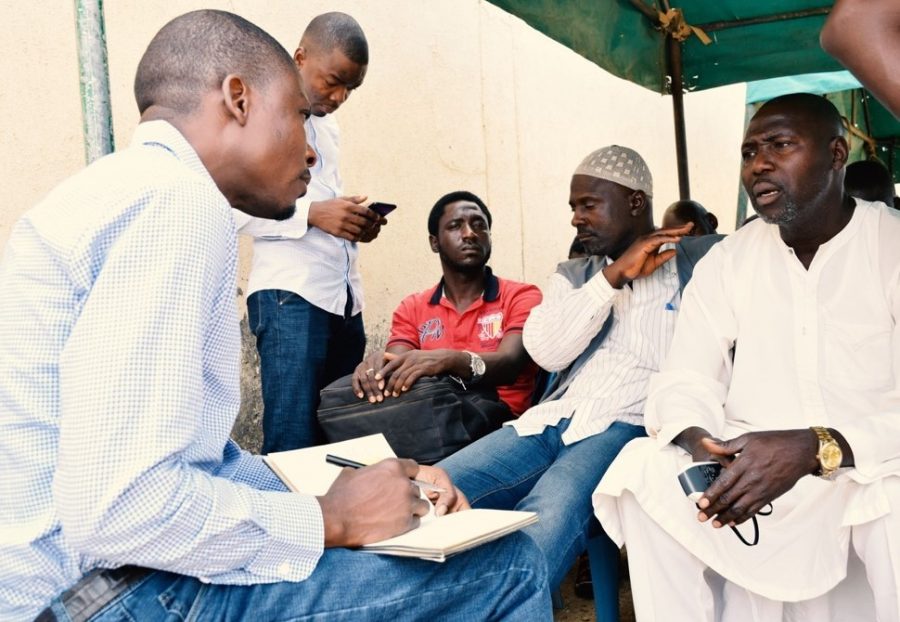Financial inclusion has been a great challenge across the world, especially in Africa. Nigeria contributes bulk to figures on financial exclusion in Africa despite priding itself as the most populous country on the continent and an economic giant by extension. With a population of over 190 million people, research shows that 73.2 million adults representing 41.6% of the adult population in Nigeria are financially excluded.
About one in five adults and 38% of households’ report having a formal bank account. This includes both commercial banks (34% of households) and other financial institutions such as microfinance institutions (MFI), cooperative societies, and savings associations. The incidence of banking is higher in the South West region with 56% of households banked and lowest in the North West region with only 16% of households having a formal bank account (National Bureau of Statistics NBS).
Financial exclusion is strongly related to poverty: the wealthiest 20 percent of households are at least 8 times more likely to have an account than the poorest households. It is no wonder that the poorest states in Nigeria are in the northern region of the country where banks have little to no presence. According to a long-standing poverty statistic, the poverty rate in Nigeria’s south-west is 19.3%; south-south, 25.2%; north-east, 76.8%, and north-west, 81.1%.
[READ ALSO: Nigerian graduates face further dilemma as 43% of Bank employees now contract staff]
In spite of these statistics, the majority of the food produced in Nigeria comes from the North. Rice production in Nigeria’s marketing year (MY) 2017/2018 was estimated at 3.2 million hectares and 3.7 million tons mostly by small scale farmers from Kebbi, Kano, Ebonyi, Anambra, Niger, Sokoto and Kogi states. Maize production MY2017/2018 was estimated at 200,000 hectares and nearly 11 million tons from Niger, Kaduna, Taraba, Plateau and Adamawa states. Sorghum MY2017/2018 at 5.4 million hectares and 6.6 million tons from Zamfara, Niger, Plateau, Katsina, Kaduna states and Wheat production MY2017/2018 was estimated at 60,000 hectares and 60,000 tons from mostly Borno, Yobe, Jigawa, and Kano states.

More than 90% of these Agriculture outputs are accounted for by financially excluded smallholder farmers with less than two (2) hectares under production. The absence of commercial banks in their communities leave a bulk of the populace unbanked and financially excluded.
In a 2011 poll of Nigeria’s unbanked populace, 61% expressed a desire to have an account, but there was no bank close enough to make their simple wishes a reality. Farmers consequently are reliant singly on cash availability despite their wide range of financial needs—for both agricultural activities and family life. They end up indebted and access financial services from informal sources because they cannot access credit from institutional and non-institutional sources.
AFEX Commodities Exchange Limited (AFEX) is set to substantially increase the value chain and growth of the Nigerian agricultural economy. We aim to deepen financial inclusion and a savings culture among smallholder farmers because we understand that an active bank account means that farmers can possess a healthy balance sheet which will increase their probability of accessing loans through the formal sector, helping them boost their productivity and earn more.
[READ ALSO: With “trading stories”, AFEX introduces the market to its education platform]
AFEX has made great strides in reaching smallholder farmers and providing solutions for problems in the country’s agricultural sector through the deployment of storage services, the provision of electronic warehouse receipts, and the facilitation of input financing while ensuring that farmers are financially included.
We are licensed as an aggregator within Nigeria’s financial inclusion ecosystem, which allows us to register farmers and issue BVNs, open bank accounts, and also facilitate transfers, receipt of cash and bills settlement. Since 2014, AFEX Nigeria has reached and enhanced the livelihoods of over 150, 000 farmers with a goal of reaching 1 million farmers by 2022.




















Looks like two stories have been mixed up in this write-up. Else, what is the relationship of the Afex story to the Financial Inclusion story?
Please ignore